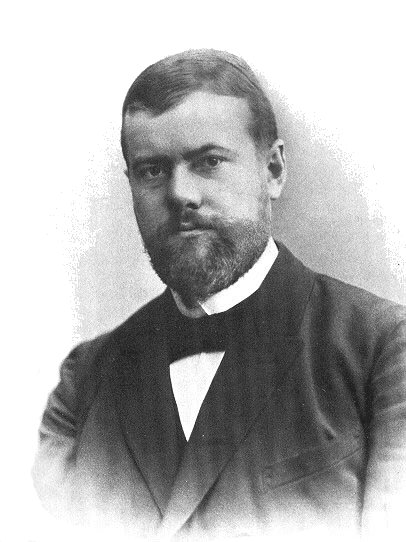Origine: Da Sociologia delle religioni.
Max Weber frasi celebri
Origine: Il lavoro intellettuale come professione, p. 29
Origine: Il lavoro intellettuale come professione, p. 20
L'etica protestante e lo spirito del capitalismo
L'etica protestante e lo spirito del capitalismo
Frasi sulla vita di Max Weber
Origine: Citato in Ulla Berkéwicz, Forse stiamo diventando pazzi.
Il lavoro intellettuale come professione, Incipit
Il lavoro intellettuale come professione
Max Weber Frasi e Citazioni
L'etica protestante e lo spirito del capitalismo
L'etica protestante e lo spirito del capitalismo
“La burocrazia è tra le strutture sociali più difficili da distruggere.”
Origine: Citato in Focus, n. 114, p. 151.
Origine: Da La scienza come professione, Einaudi, Torino, 2004, p. 12.
Origine: Da Il socialismo, in Scritti politici, traduzione di A. Cariolato ed E. Fongaro, Donzelli Editore, 1998.
Origine: Il lavoro intellettuale come professione, p. 18
Origine: Il lavoro intellettuale come professione, p. 89
“È destino del nostro tempo… soprattutto… il disincanto del mondo.”
Origine: Citato in AA.VV., Il libro della sociologia, traduzione di Martina Dominici, Gribaudo, 2018, p. 41. ISBN 9788858015827
Max Weber: Frasi in inglese
Max Weber, The Nature of Social Action, 1922
Origine: From Max Weber: Essays in Sociology (1946), p. 154; Essay: "The prestige and power of the “Great Powers."
Origine: Religion of China (1915), p. 160
Origine: The Protestant Ethic and the Spirit of Capitalism (1905; 1920), Ch. 3 : Luther's Conception of the Calling
Origine: The Protestant Ethic and the Spirit of Capitalism (1905; 1920), Ch. 4 : The Religious Foundations of This-Wordly Asceticism
Origine: Religion of India (1916), p. 20
Max Weber's last words (1920), as quoted in Prophets of Yesterday : Studies in European Culture, 1890-1914 (1961) by Gerhard Masur, p. 201
“Politics means a strong slow drilling of hard boards, with passion and judgment at the same time.”
German: "Die Politik bedeutet ein starkes langsames Bohren von harten Brettern mit Leidenschaft und Augenmaß zugleich."
"Politics as a Vocation" (1919)
Origine: From Max Weber: Essays in Sociology (1946), p. 124; Essay "Politics as a vocation"
This tendency has not been observed in the same way in the present or the past among Catholics, regardless of whether they were the dominant or dominated stratum or constituted a majority or minority. Therefore the cause of the different behavior must be mainly sought in the enduring inner quality of these religions and not only in their respective historical-political external situations.
Origine: The Protestant Ethic and the Spirit of Capitalism (1905; 1920), Ch. 1 : Religious Affiliation and Social Stratification
